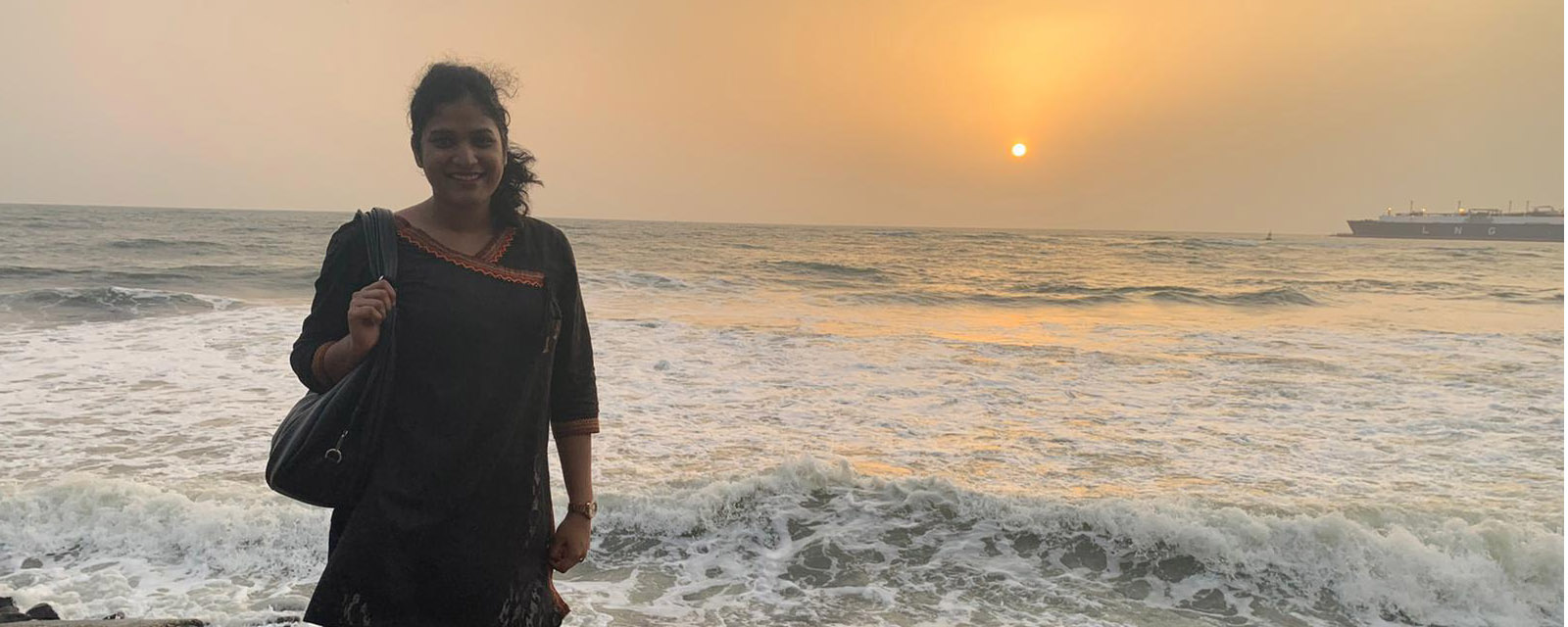When talking about big projects you can never discount the ground work; that’s the elbow grease, the sweat and tears of research assistants that make sure everyone’s clued in. It can be tireless and backbreaking work sometimes and we want to shine a light on it. When exploring India’s maritime history and identity, we turn to one of Prof. Kaneti’s research assistants in this edition of “Into the Project”, which covers Prof. Marina Kaneti’s project team for “Power legitimacy, agency: The Belt Road Initiative and Visions for Interconnected World”, where they tell us about their involvement in the project and their journey thus far.
In this fourth edition of Into the Project, we hear from Ramita Iyer, our 23-year-old Master of International Affairs candidate from India. Ramita’s desire to study here was to catch the “Rise of Asia” at the crest of the wave to get a strong grounding in international relations from a different perspective. Her foresight matches her heart as her plans for the future involves playing a part in negotiating successful peace treaties in areas of conflict. But while she fights the good fight, it might surprise you to know she can play six musical instruments and enjoys hiking in the Himalayas!

Keeping on topic about showing a fighting spirit, we asked her a few questions about her experiences and involvement in the project thus far:
1. Briefly, what is the project about and what is your role in the project?
I worked on Prof Kaneti’s project titled ‘“Power, legitimacy, agency: the Belt Road initiative and vision(s) for interconnected world”. I worked as a full time Research Assistant last summer, exploring key aspects of India’s global connectivity narratives in the past, and present-day connectivity based foreign policy initiatives that directly or indirectly respond to the discourse of ancient connectivity and peaceful exchange presented by the Chinese government.
2. What have your contributions been thus far and what do you expect to be doing in the current days?
I performed background research, examined prevailing literature, conducted fieldwork including interviews, archival research and site visits, and analysed data. I travelled to New Delhi, and the maritime historical cities of Kochi and Thiruvananthapuram in Kerala, India. In the coming days, I will be contributing to the website via articles based on my fieldwork and desk research.
3. Regarding your expectations of the project:
- Was there anything that surprised you?
My most surprising discovery was the lack of adequate documentation of India’s rich maritime history prior to the arrival of the Portuguese in late 15th century. The disorganised condition of the government archives altered my expectations on how much I would be able to achieve given my limited time on the field.

- What was the most and least enjoyable part of the project?
The most enjoyable part of the project was the overall learning experience and all the travelling that I got to do. My least enjoyable experience was the inability to fill some information gaps during my field work. While it was frustrating back then, in hindsight I understand that it is all a part of a real on-the-ground research experience.

4. Is there anything you are looking forward to learning in your time participating in this project?
I am no longer directly associated with the project since I graduate this summer. However, I am very excited for what Prof. Kaneti and the team will achieve in the coming months. I also look forward to contributing articles to the website, based on my work for the project.
5. Project work entails working closely with people, any fun stories to share on that front?
I was travelling for about a month in Kerala in the hope of finding more about its rich maritime history given that it was one of the most important ports of the trans-oceanic trade networks until 14th century CE. One of my tasks during this time was to explore the role of women in spice trading using oral history interviews. My most exciting and fun experience was chasing down women in the spice markets of Fort Kochi, hoping they would want to talk to me and tell me their stories, in a language that I am barely fluent in.

6. They say travels broadens the mind, has your time in this project brought about new perspectives for you?
My travels to Kerala have definitely brought new perspectives. I have gained a new perspective into my own country’s rich maritime history – one that is not widely taught in schools or elsewhere. On a more personal front, this project also gave me a glimpse into the life of a researcher. I experienced the joys of finding relevant information and listening to exciting stories from different people, and also learnt to deal with the frustrations that came with the isolating experience of being on the field, hoping to find what you’re looking for.
7. If given a chance, would you do projects like this again? Why or why not?
Given the chance, I would definitely be part of such a project once again. It is not often that one gets to work on a project that has such a rich historical significance and yet, at the same time, is important in contemporary politics. Additionally, working with Prof. Kaneti has been a thoroughly enjoyable experience. She has pushed me to think and act beyond what I had thought possible, both in terms of my academic research capabilities and interacting with people on the ground.